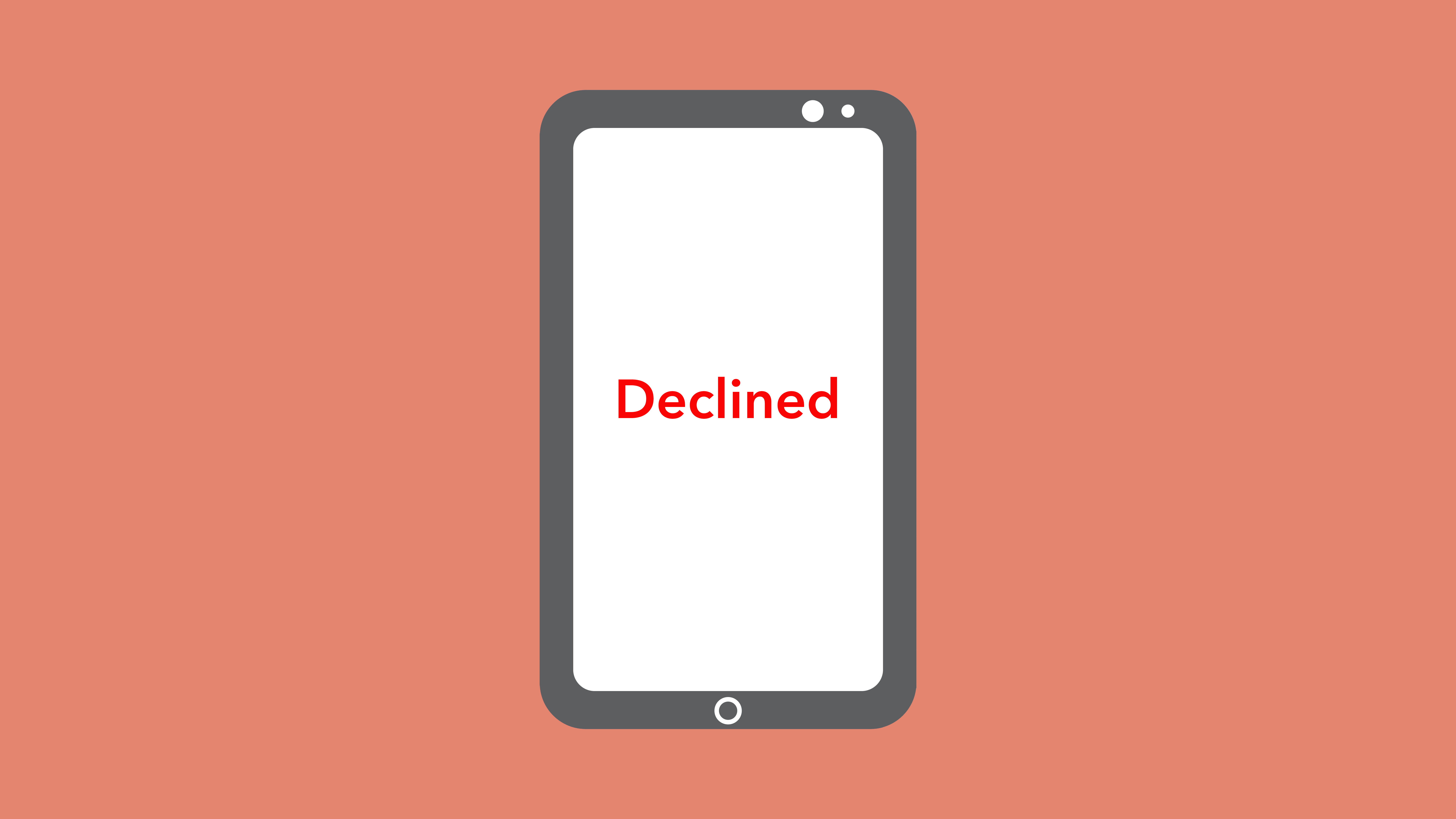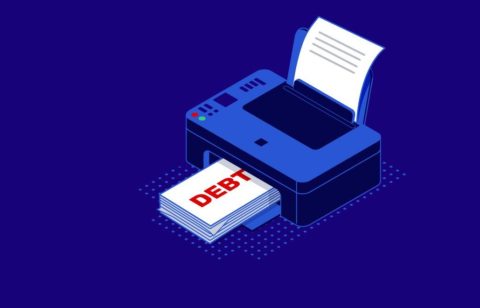If you’ve been denied a debt consolidation loan, you probably feel like your back is against the wall. Take a deep breath, it’s not as bad as you might think because you have options.
When you first hear about debt consolidation loans, they might sound like the answer to your prayers. A simple, streamlined way to make your debt payments manageable, pay less to your creditors than you owe, and achieve financial wellness!
Not so fast; debt consolidation loans aren’t for everyone. Not to mention, being declined for one can be disheartening. You got your hopes up and applied, only to be rejected. Now what?
People Also Read
Five things to do if you’re declined for a debt consolidation loan.
1. Figure out why you were declined.
Debt consolidation lenders don’t decline loans for no good reason. On the contrary, the more loans they hand out, the more money they make. So, they have plenty of incentive to approve as many loans as they can to qualified borrowers. If a lender declined your loan application, there was a valid reason. Understanding why won’t just give you closure; it will also help you understand how debt specialists view your financial situation. That way, you’ll know how to improve it before seeking another debt consolidation option.
There are three common reasons people are refused a debt consolidation loan: lack of income, too much debt, and poor credit scores.
You were denied because of your low income
You can’t expect your debt consolidation lender to take you at your word that you can afford a loan. They need proof that you can meet the monthly payments. To that end, they look at your current income level in relation to your expected loan payments. If the lender doesn’t think you’re up for the task, your chances are slim. You can ask for a smaller loan, but that probably won’t do the trick.
You have too much debt
Aside from your current income level, lenders also look at how much debt you currently have on your plate before offering a personal loan. If they think you’re already struggling, they’re unlikely to offer you more. It’s a good idea to make your lender aware of the purpose of your personal loan. This can make all the difference between hearing a “yes” or a “no.” You could also seek out a lender that specializes in debt consolidation, as they might be more understanding about your sizeable debt.
Your credit score is too low
Your credit score is an indication of your creditworthiness. Are you a good candidate to borrow money? Can you be trusted to keep up with the payments? If your credit score is low, so are your chances of approval.
Unfortunately, there aren’t many short-term solutions if you have a low credit score. You might be able to convince your lender to offer you a loan, but it will likely be at a high-interest rate. This approach will cost you more money in the end and can defeat the purpose of getting a debt consolidation loan in the first place.
Once you understand why you were denied a debt consolidation loan, it’s time to take the next step: come up with a viable alternative.
2. Make a budget and live with your debt as well as you can
If you’re not currently eligible for a debt consolidation loan, you need to figure out an alternative solution— at least in the short term.
If you don’t already have a budget, make one to get a handle on your finances. List every source of monthly income on a spreadsheet. If you’re an hourly employee an educated guess is fine, you won’t be too far off the mark. Then deduct your fixed expenses (rent, car payment, etc.) and your variable expenses (utilities, groceries, gas, etc.).
There are a few options for how to use the excess money. You can give yourself a buffer by socking away as much as you can afford. That way, you no longer need to rely so heavily on credit and drive yourself deeper into debt.
You can also allocate the funds towards paying off your debts. By strategically adding more than the minimum monthly payment, you can spend less on interest and pay it off sooner.
There are two basic approaches to this strategy, each with their own pros and cons.
The first is the “debt snowball.” Using this method, you identify the debt with the lowest total balance. While continuing to make your minimum monthly payments, you add as much extra money as possible. This strategy enables you to eliminate one of your debts quickly, freeing up more of your income to pay off the next-lowest debt. Hence, it’s a snowball effect.
The second approach is the “debt avalanche.” Like the snowball, you choose which debt to pay off first. But this time you identify the debt with the highest interest rate and focus on eliminating it. It might take you longer. But the avalanche should save you the most money over time since it removes your highest sources of interest first.
Now that you’re armed with important information, do you think you can get out of debt on your own? Do you still need outside help? If you need a hand, help is a phone call away.
3. Talk to a credit counselor to help repair your credit
Let’s say you were declined for debt consolidation due to a low credit score and large amount of debt. If you’re still curious about your debt consolidation options, you need to come up with a plan to get a handle on things. Sometimes, seeking professional help is your best bet.
Credit counselors are professionals who help people struggling with debt figure out their next move. Many work for non-profits and offer free credit counseling services to those who qualify.
When you make an appointment for a free initial credit consultation, you’ll sit down with a counselor who asks questions to get a snapshot of your finances. From your current income and debt levels to your total expenses and assets, your counselor will work with you to lay everything out in a way you can easily understand.
Once your counselor understands the full financial picture, they can walk you through your options. They may discuss the benefits of debt consolidation loans with you as well as other options, such as debt management plans. They will also walk you through ways to improve your credit score so that you have a better chance of eligibility moving forward.
Meeting with a credit counselor should arm you with all the information you need to ascertain your best course of action. If the solution is a debt consolidation loan, your next step should be to improve your credit and apply again.
4. Build up your credit and reapply
If you’re denied your first debt consolidation loan, sometimes the best option is to give it a second go. Re-apply and see what happens.
Before that, you should hedge your bets. As already discussed, there are three major reasons why people are denied debt consolidation loans. They don’t make enough money to keep up with the payments; they have too much debt to get the loan, or their credit score was too low to qualify.
The answers to the first two problems are clear. If your income is low, you should seek employment that is more lucrative, ask for a raise, or supplement your income in some other way. If your amount of debt is sky high, work on paying it down by sacrificing some non-essentials.
Increasing your credit score, on the other hand, can be a much thornier issue. You can’t wave a magic wand and make bad debt disappear overnight, but there are certain rules you can follow to speed things up.
First, make sure you’re paying all your bills on time. Late payments are one of the most common reasons why credit scores falter. If you let them go unpaid long enough, your creditors will get collections agencies involved. Collection agencies are the enemy of credit scores.
Second, do what you can to reduce your debt as much as possible. Lowering debt, in general, is a good idea, but it also plays a large role in your credit score. Your credit utilization ratio measures how much of your available credit you’ve used. The higher it is, the more damaging it is to your credit score. The reverse is also true. The less you use, the better your credit score should be.
Third, try to avoid switching up how you use your credit. Opening and closing credit accounts can damage your credit score, as can certain types of credit checks. You should only keep unused credit cards around If you have the self-discipline to keep them open without running up a tab.
Fourth, be patient. You can’t rebuild your credit score overnight. That goes double if there are negative marks on your credit report such as a bankruptcy or foreclosure. Those types of items stay on your credit report for years and can drag your score way down, even if they’re the only things that currently count against you. Once they come off your report, you’ll be in much better shape.
As your credit score slowly climbs, you’ll be better situated to re-apply for a debt consolidation loan. If you gain approval the second time around, that’s great! If not, there are other options to fall back on.
5. If all else fails, consider these options
If you’re still denied a debt consolidation loan, you’ll probably be ready to throw in the towel. But don’t because there’s still hope—including balance transfer credit cards, debt settlement, and more.
With balance transfer credit cards, you open a new credit card that’s offering a 0% introductory APR. For a set period, the balance on the card will not accrue interest, meaning that every dollar you pay goes towards reducing your total balance. Use that card to pay off your other debts but be sure time doesn’t run out before the introductory APR expires. It’s essentially the same idea as a debt consolidation loan.
Debt settlement is a very different animal but it’s a great fit for larger debts. You work with a company that negotiates with creditors on your behalf. Instead of paying your creditors, you make monthly deposits into an FDIC insured savings account solely in your name. If creditors begin blowing up your phone, the debt settlement company is there to help take care of those pesky phone calls for you.
Once the money in your savings account builds up, the debt settlement company will approach your creditors on your behalf. They will offer a lump sum that’s usually a fraction of what you owe in exchange for forgiving the rest of your debt. Creditors will often say yes, accepting the easy money now instead of pulling teeth to get the money later.
If you’re still unsure what to do after being denied a debt consolidation loan, call National Debt Relief. An encouraging coach will walk you through your options.









